Irene van Driel

Irene van Driel
Irene I. van Driel received her Bachelor Degree in Neuropsychology from the University of Amsterdam. She currently pursues a Master in Neuroscience at the Free University, also in Amsterdam. While she is basically interested in “any kind of brain related topics”, she primarily focuses on issues related to diseases, dysfunctions, and brain damage.
Lotte Pummerer
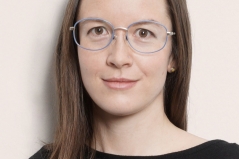
Lotte Pummerer
Lotte Pummerer is a postdoctoral researcher at the University of Bremen. In her research, she examines how beliefs (including conspiracy beliefs) shape our behavior in society. She is particularly interested in how positive interactions can be fostered.
Twitter: @LPummerer
Bluesky: https://bsky.app/profile/lpummerer.bsky.social
Cláudia Simão
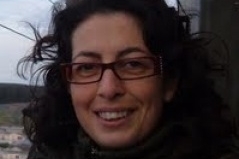
Cláudia Simão
Cláudia Simão received her Bachelor in Psychology from the University of Algarve, Portugal. She currently works on her PhD project, for which she received a grant from the Portuguese science foundation, at CIS, Lisbon University Institute, Portugal. Cláudia’s main research interests concern social relationships and emotions.
Bernd Strauss
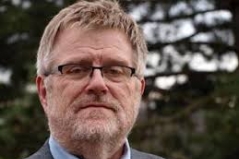
Bernd Strauss
Prof. Dr. Bernd Strauss is a full professor and head of the Department of Sport and Exercise Psychology at the University of Muenster. His research focuses on three main areas: social psychology, expertise, and quantitative research methodology. His research has been funded by several institutions as primary investigator and co-investigator. He published more than 125 peer reviewed papers, more than 35 books, and served as Editor in Chief of the journal “Psychology of Sport and Exercise” for 11 years. He has also filled multiple positions in- and outside the university (e.g., as dean or in professional societies and organizations).
Abdolhossein Abdollahi
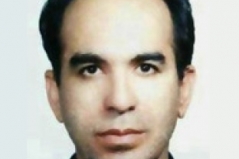
Abdolhossein Abdollahi
Abdolhossein Abdollahi is an Associate Professor of Psychology at the Islamic Azad University-Zarand Branch, Iran. His main area of interest is Terror Management Theory (TMT), a social psychological theory positing that much human social behavior is driven by the need to avoid thoughts of one's death and mortality.He is also interested in such areas as false memory, judgment and decision making, evolutionary psychology, social cognition, and social embodiment.
Julia T. Schwender
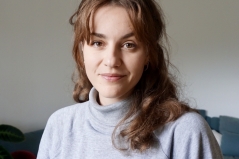
Julia T. Schwender
Julia Schwender is a research associate and PhD student at Technical University of Munich, focusing on interpersonal violence in elite sport. Her research aims at understanding and preventing escalation dynamics leading to abusive behaviour, focusing on communication. Additionally she applies her expertise in sport psychology as a freelance psychologist and trainer for athletes, coaches, and sport associations.
Carina Giesen
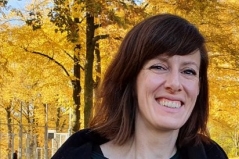
Carina Giesen
Carina G. Giesen is Professor of Cognitive Psychology at the HMU Health and Medical University Erfurt in Erfurt, Germany. She studied psychology in Jena, Germany, and Glasgow, UK and received her PhD in Jena. Her research focuses on automatic action regulation. Stimulus-response binding and retrieval processes are therefore a core feature of her research, which she relates to learning phenomena, such as observational learning, contingency learning, and evaluative learning.
Carina G. Giesen
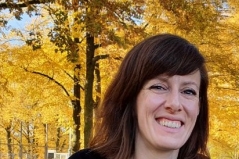
Carina G. Giesen
Carina G. Giesen is Professor of Cognitive Psychology at the HMU Health and Medical University Erfurt in Erfurt, Germany. She studied psychology in Jena, Germany, and Glasgow, UK and received her PhD in Jena. Her research focuses on automatic action regulation. Stimulus-response binding and retrieval processes are therefore a core feature of her research, which she relates to learning phenomena, such as observational learning, contingency learning, and evaluative learning.
Kathryn Bartlett Anderson
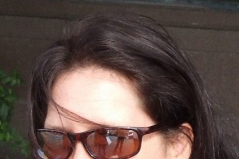
Kathryn Bartlett Anderson
Kathryn B. Anderson is a Social Psychologist and Professor at Our Lady of the Lake University in San Antonio, Texas. She has conducted research on the causes of aggression and violence for over 20 years. She is particularly interested in the "intersectionality" of current feminist and multicultural thought with research on aggression.
Odilia M. Laceulle
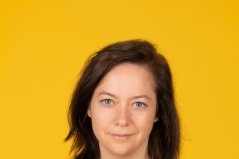
Odilia M. Laceulle
Dr. Odilia M. Laceulle is Associate Professor in the Department of Developmental Psychology at Utrecht University and a senior scientific researcher at Reinier van Arkel and GGzCentraal. Email: o.m.laceulle@uu.nl
